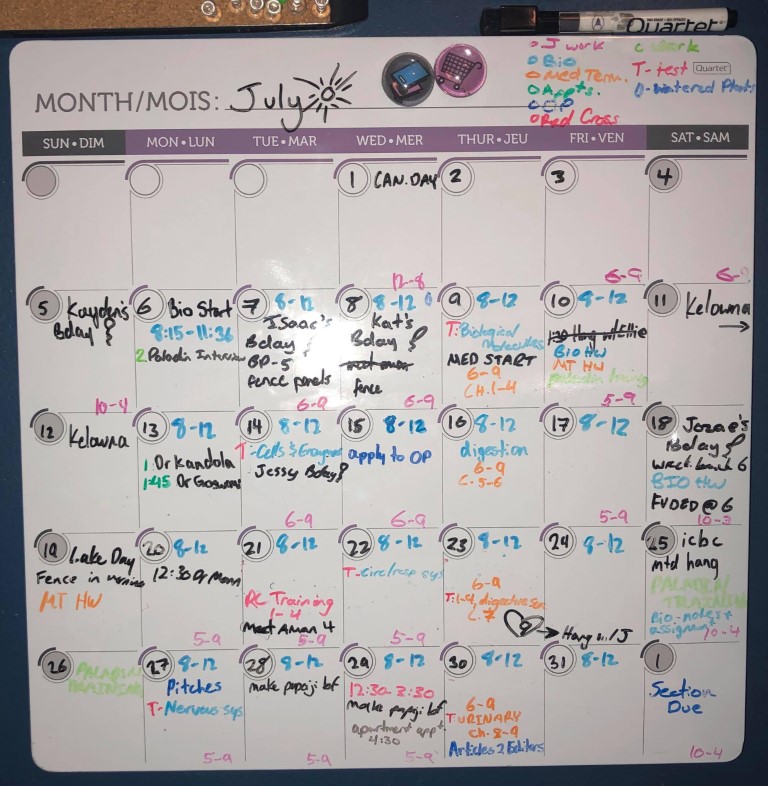
A how-to guide on the most tedious aspect of job hunting
By Brittney MacDonald, Life & Style Editor
Many of us are taught how to make up a résumé fairly early in our high school or middle school careers. Something of lesser focus is the construction of a cover letter. In the past, a cover letter was restricted to specialized jobs, or as a bonus piece of paper to attach to your résumé should your work experience be varied or limited. It is meant to be used as a means of displaying your eagerness, like an opening argument in an essay. Generally speaking, you used to only have to use them when you were entering your desired field, whatever that may be. But, like with everything, the concept of a cover letter has changed.
Nowadays, more and more employers are making it mandatory for you to write one up for even the most basic of part-time jobs. As someone who was recently job hunting, this seemed entirely ridiculous to me.
Being forced to write a cover letter to apply for a part-time job you’re only taking to afford to go to school is stupid. There’s no one person working 20 hours a month at a mall or waiting tables who sits down at night and contemplates making a career out of it. You do it for one reason, and that’s to survive. Unfortunately, you can’t put “to avoid becoming homeless” on your job application under reasons why you’re applying.
Cover letters have become the new way for hiring managers to avoid actually reading a résumé. Generally speaking, a cover letter is extremely brief, and only references your relevant experience and skills for the job you’re applying for. From a hiring manager’s point of view, it tells them all they need to know in about half the time it would take to read a resume. From a job hunter’s point of view, it’s a pain in the ass.
When writing a cover letter for more basic jobs, it’s a good idea to write up a couple different templates. Ones that will display major, relevant information, but with minor details that can be swapped out or changed depending on the position. Here’s how you do it.
Begin by typing up your contact information in the left hand corner: name, e-mail, and phone number. Beneath that, you’re going to want to put the date you’re submitting the application. This is one of those things you need to remember to change every time you use the template. Leave a space before typing up the mailing address for the company/store/whatever you’re applying for. This is really just a formality.
After another space, address who you’re speaking to. Generally you’ll write “Dear Hiring Manager,” since you probably won’t know their name. If you do, bonus. From here on in format it like a regular letter. It should be around three paragraphs, the first addressing how you learned about the job and letting them know that you’re local to the area their company is in. Generally you’ll want to keep this brief, but it’s one of those parts that you can reuse since you’ll probably be applying for jobs around where you live. Change the place you heard about the job as needed. The next paragraph will address your formal education—focus around large concepts like communication and/or customer service, and keep it general and brief. Focusing on large concepts makes the template reusable. Use said template when you apply for jobs that touch on those general fields—do that and you won’t have to change this paragraph much at all. In the third paragraph address your work experience and certifications for the field (Serving It Right, Foodsafe, etc.), focusing on the things that are most relevant to the concept(s) you chose in paragraph two. For added effect, pop in a few buzz words from the job posting, stuff like “team-player” and “motivated.”
Lastly, sign off in a way that invites conversation, something like “I hope to hear from you soon.” Don’t be too formal here, especially if you’re applying for a part-time job. End with your name and address. Altogether, your cover letter should be around 200–300 words.
Finding a job is hard, especially while you’re a student—mostly because there’s about a million others out there vying for the same work you are. So make it easier on yourself, and save writing a real cover letter for when you’re actually passionate about what you’re applying for.

